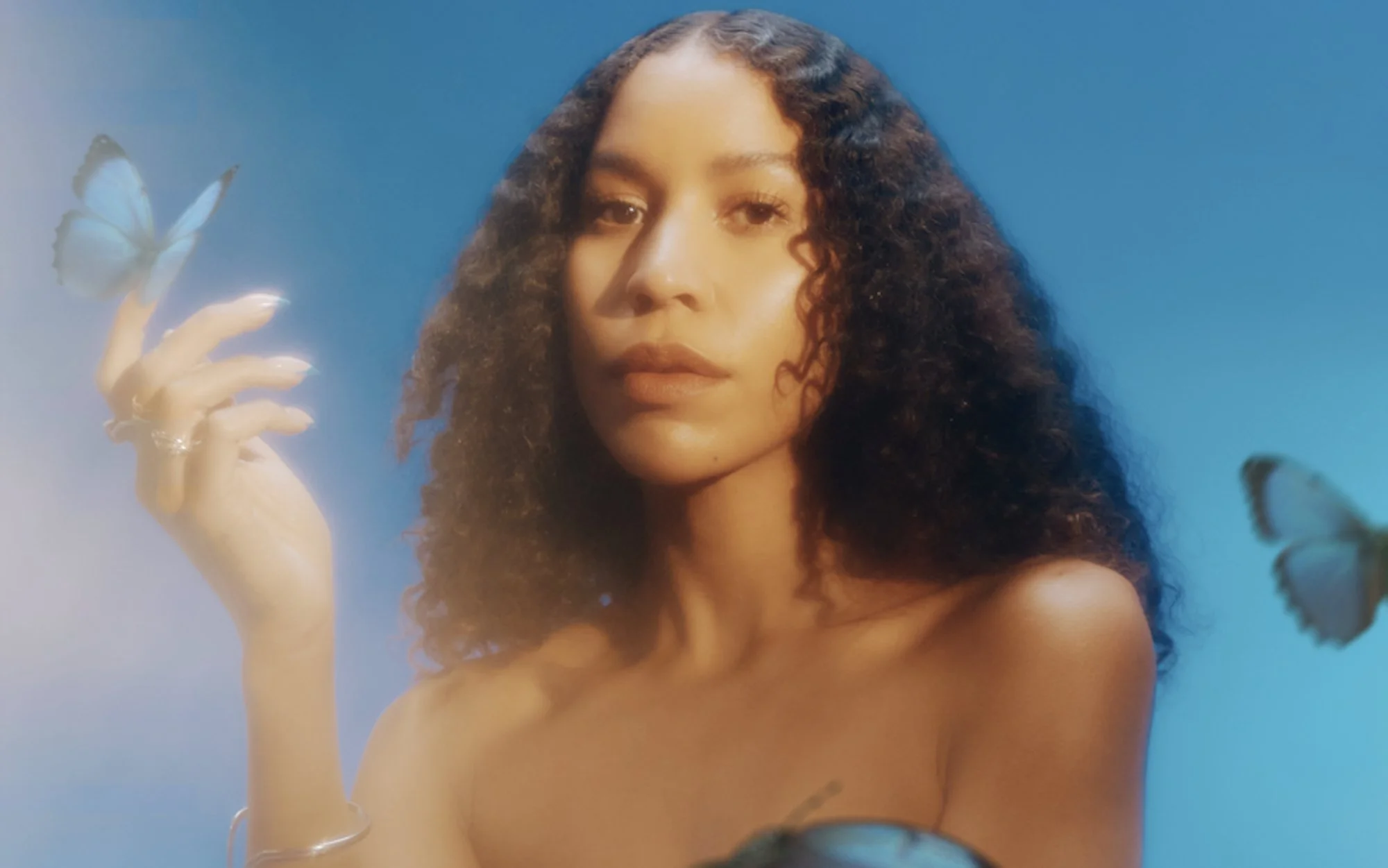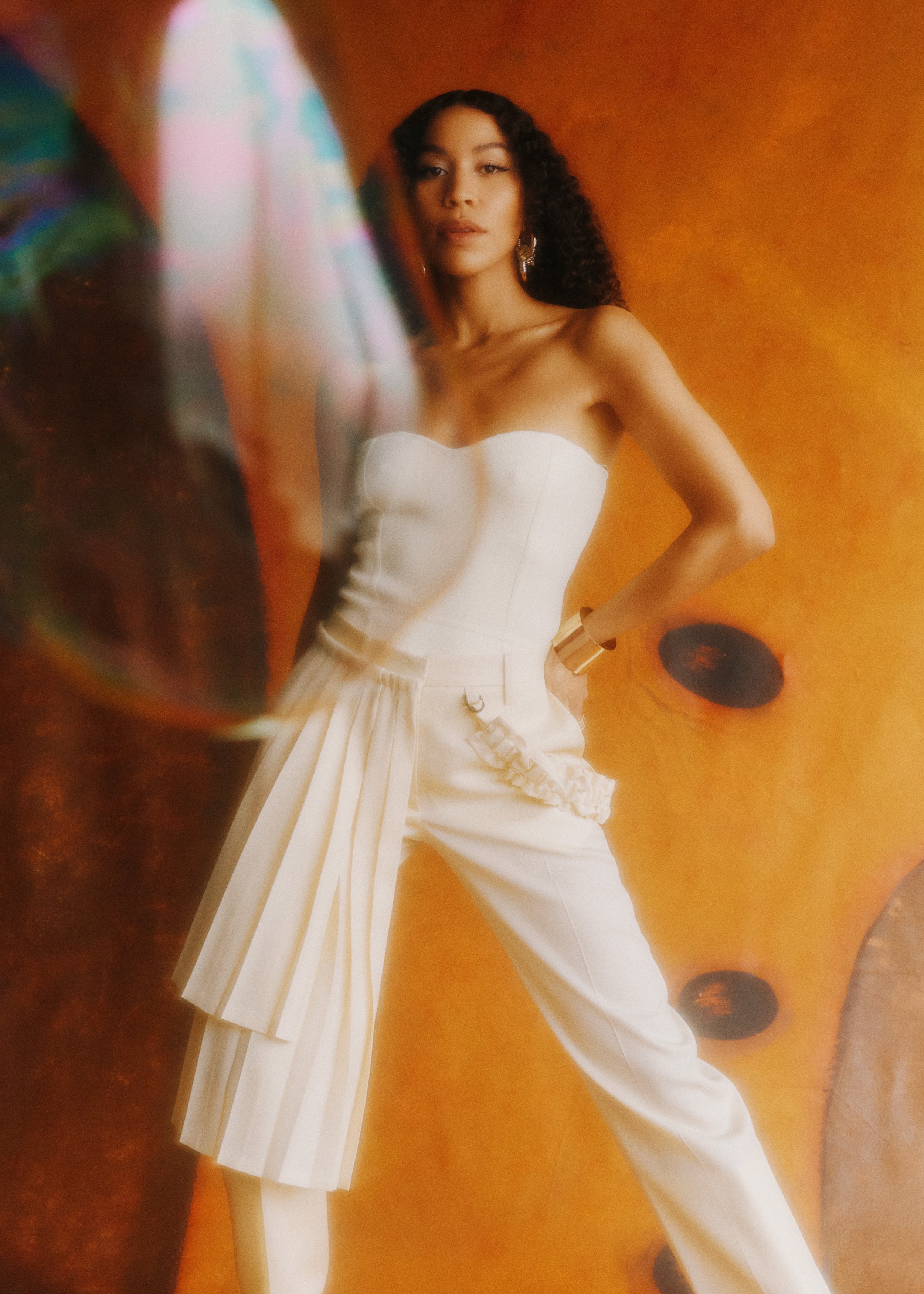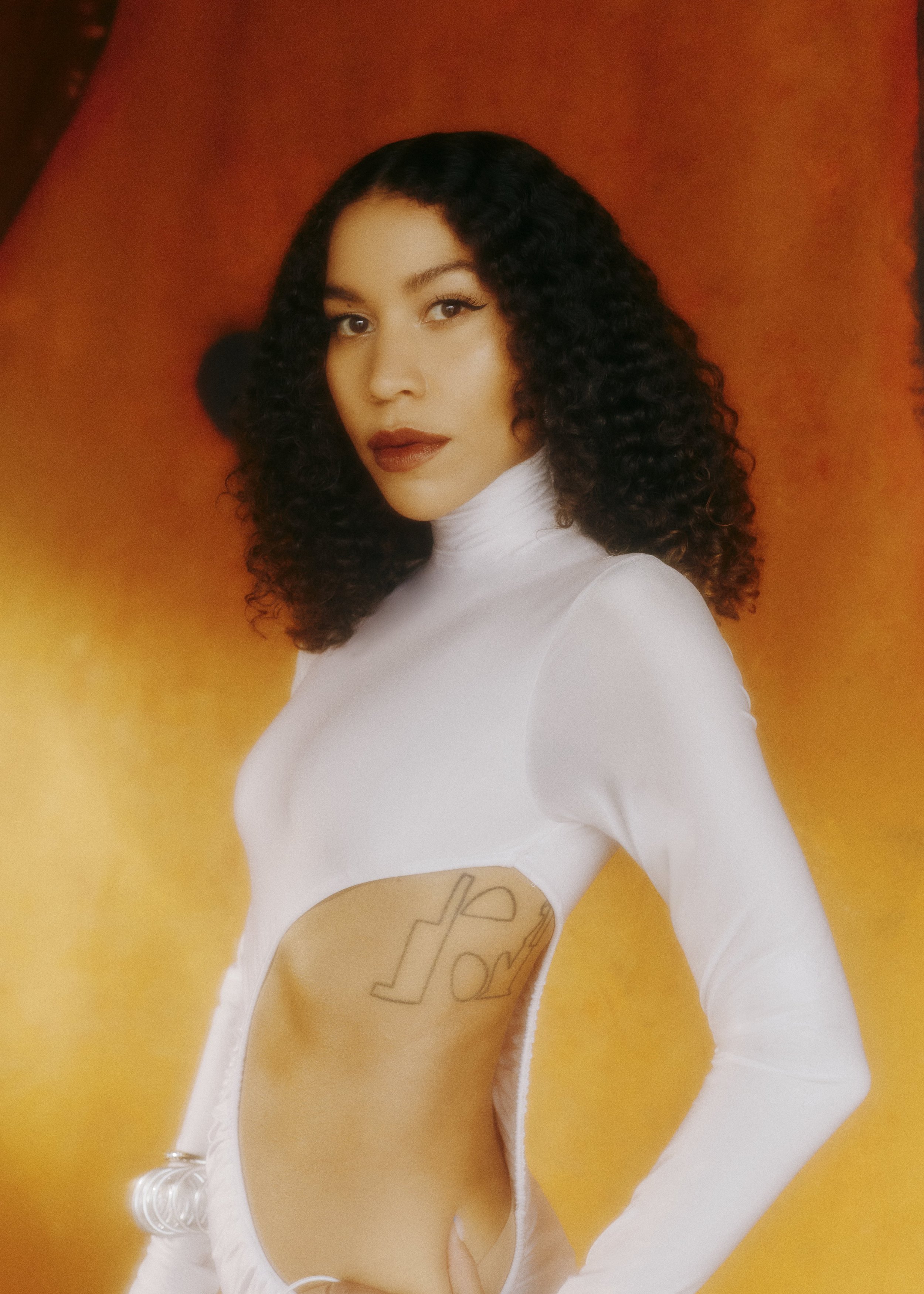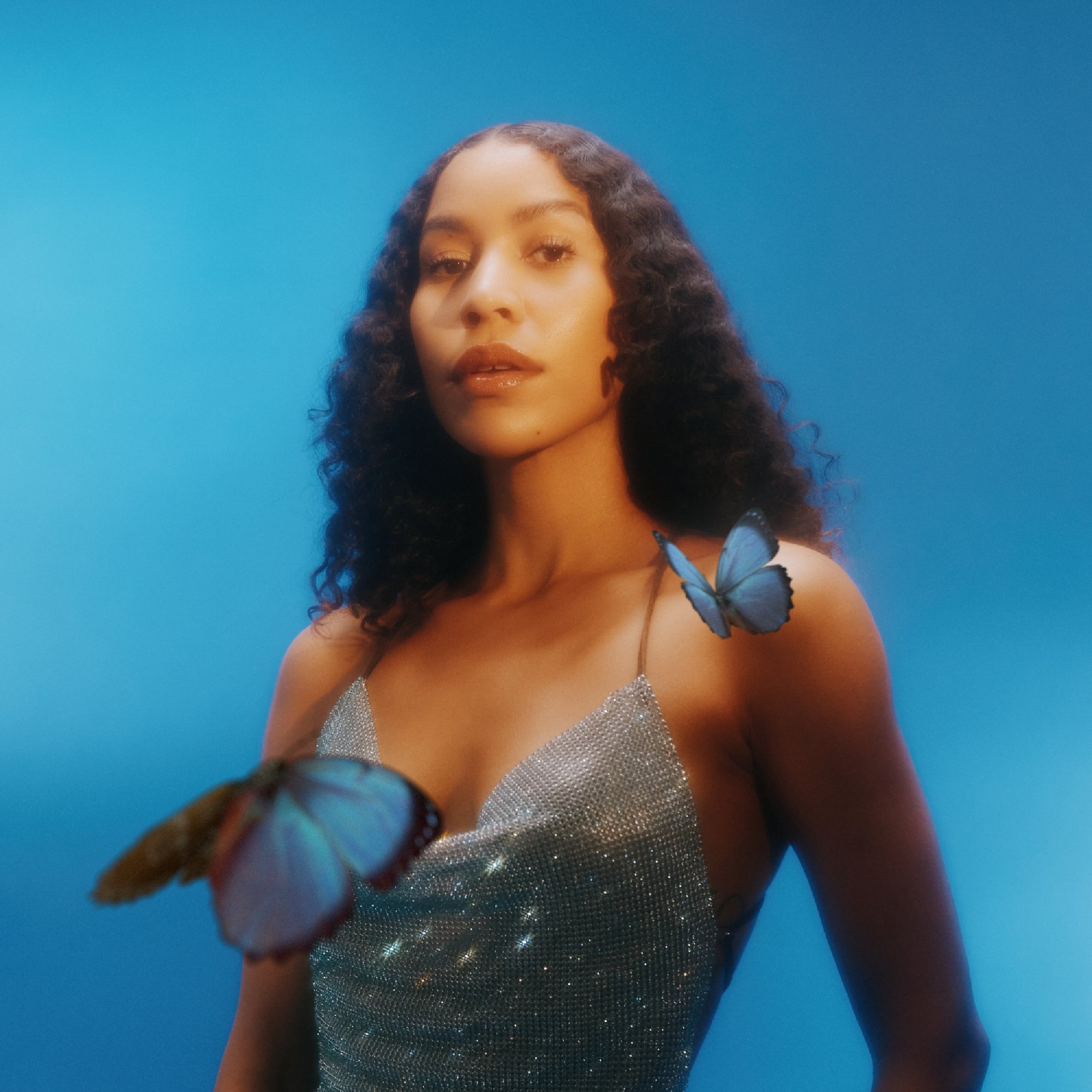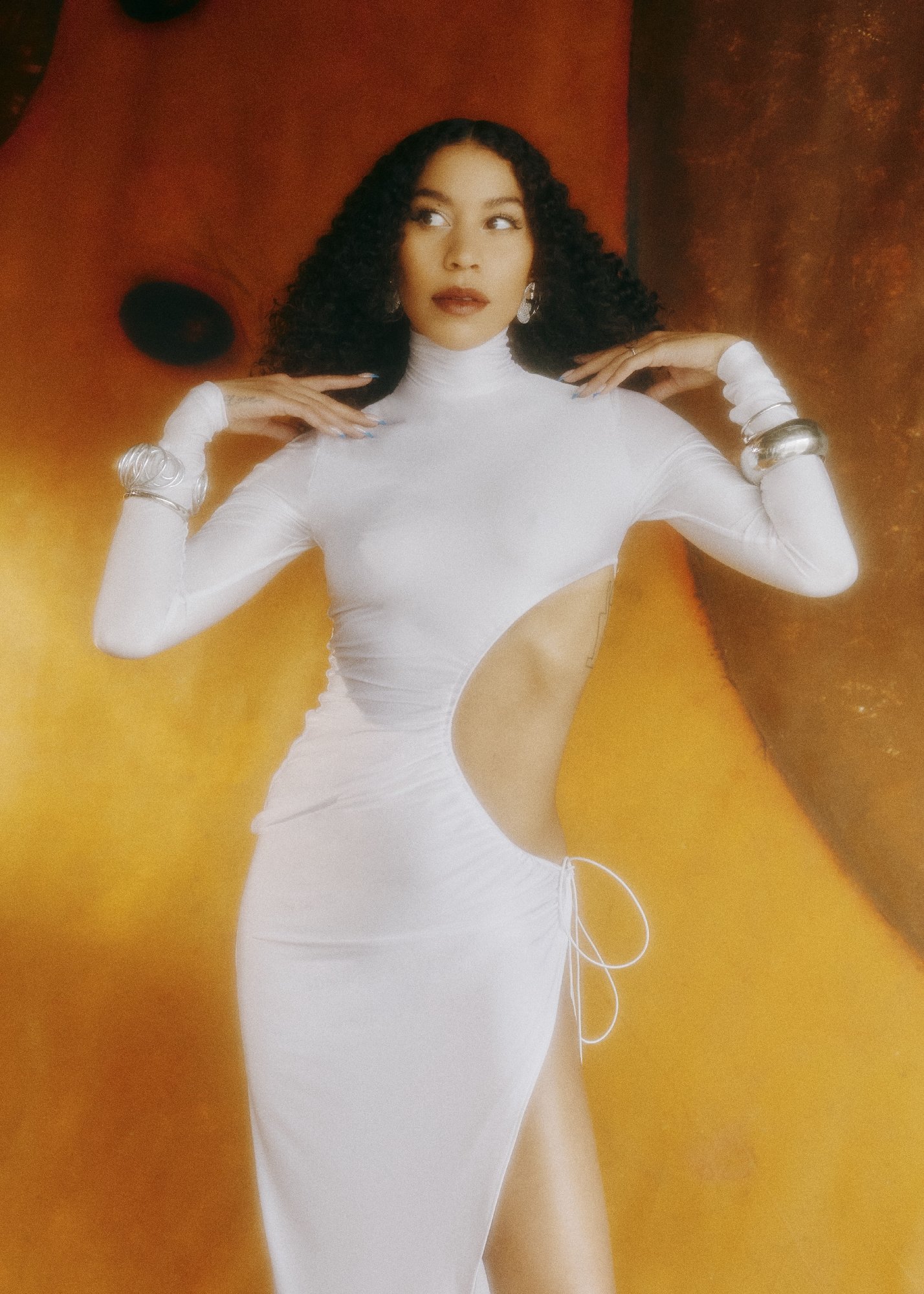The singer embraces a personal process of metamorphosis on her latest album Morfo
Every so often we witness the dissolution of old aspects of ourselves that transform into something new. Art holds a magnifying glass up to those complex intervals of change and for Charlotte Dos Santos, they helped to form the inspirations behind her latest album ‘Morfo’. Her liberated style of nu jazz, música popular brasileira, vintage R&B and soul provided the soundscape to her lockdown meditations, allowing the album to evolve through its own process of metamorphosis as Dos Santos shook off dated ideas to make room for the stories that need to be told in the present.
Created against the expansive Norwegian landscape where she resides, the album is rooted in her Brazilian heritage and takes inspiration from the morpho butterfly that inhabits the Amazon forest. Just as the butterfly undergoes a season of gestation before emerging from the chrysalis, Dos Santos has embraced her own spells of growth through another chapter of womanhood and creativity. “I love the symbol of the butterfly because I always feel like I’m in a transition. I’ve been moving around a lot and I’m still on a musical journey that feels transformative every day,” she tells me.
While there are no attachments to genre, her hand-crafted arrangements bleed with touches of ethereal synth-pop and bossa nova, creating what she describes as the current “sound of my soul”. Her song writing stretches across bountiful visions of nature and the potential for new love, forging varying levels of intimacy with her listeners. “I don’t know how I create that closeness,” she reflects, saying of the single ‘Angel in Disguise’, “That was the first song where I'm actually being really honest about my flaws and that’s probably my most personal song.”
The desire to connect to Brazil and the unknown aspects of herself through her ancestry reverberate through the album. It’s a void she hopes to fill through her music while using social media to build bridges to long-distance family members. “I’ve been wanting to go to Brazil for so long but little things keep popping up and it feels like it’s not possible. I’m always missing Brazil and it’s something that still feels absent for me.” In the same breath, she comments on the attempt to manufacture emotional connections through A.I technology on the sultry ‘Ghost In A Shell’. She sings, ‘I know that one plus one is two / the only thing that I cannot do is love’ over a drowsy bassline and soaring strings.
On lead track ‘Filha Do Sol’, her melodies are a medicinal offering to the women in her lineage for their resilience and beauty through the ages. It’s an enriching moment that entwines elements of ‘O Açoite Bateu’ by Brazilian composer Edu Lobo which translates as ‘the whip is beating’. The chant is the first she sings in Portuguese and reclaims the phrase in remembrance of enslaved people. “It was one of the easier songs to write on because it was something that was already there and I just needed to get it out. It’s an homage to everyone who has gone through what our ancestors have and the things that we still carry today.” For the accompanying visual, director Eli Salcedo gathers broad shots of Norway’s still waters and plush greenery while Dos Santos deposits her stories by a running stream. “It felt really right to shoot in Norway, especially with the subject being so not Norwegian.”
Her perceptions of beauty are as much shaped by Norway’s mountaintops and waterfalls as her mental visualisations of Brazil. This sublime stretch of nature is where she grew up with her Norwegian mother and Afro-Brazilian father. He listened to hip hop and jazz in their household while her mother’s taste leaned more towards Brazilian music. “Maybe she was nostalgic after they moved back from Brazil to Norway but she had a big affection for music from all over the world – Moroccan, Flamenco, Arabic.” Dos Santos later discover R&B, opening the floodgates to icons like Whitney Houston, Toni Braxton and Mariah Carey. From there, she fell into the smoky tones of Sarah Vaughn, Ella Fitzgerald and Miles Davis, too.
“I’m always evolving and I’m still on a musical journey that feels transformative every day”
The idea to pursue music came out of a subtle internal knowing for Dos Santos. Gifted with a rich background of influences, a recorder and a cassette player, at age six she began to vocalise her desires to create. “I had these crazy ambitions but I didn’t know how I was going to get there from Norway because there was nobody here that had done this before. I wanted to dream big and I still do.” During adolescence she ebbed and flowed through vocal training with an opera teacher, African drumming and singing in a Balkan and gospel choir and then went on to study contemporary music and production, jazz vocals and art history at to Berklee College of Music. Here she developed her music theory and understanding of intricate compositional layers.
This experience birthed the self-produced workings of her 2017 debut album ‘Cleo’. Airbrushed vocals glide over a mixture of lo-fi samples and slurred jazz compositions. Channelling the essence of a mediaeval goddess, she fashioned a mesmerising vision of this feminine archetype in response to the lack of representation in the history museums she frequented during her semester in Valencia, Spain. “Within the Renaissance and Baroque era there were little depictions of the Moors so I just had to create what I was missing and what I wanted to see. So, ‘Cleo’ is a representation of everyone and definitely a representation of me.”
Dos Santos continues to paint elegant and ever-expanding soundscapes within which listeners can find reflections of themselves. Now, she looks ahead to where she could evolve next. “I want to use my vocal as the instrument that it is and I would like more collaborations. I'm definitely on another journey now. I don’t know where else it will take me.”
Charlotte Dos Santos performs at London’s Islington Assembly Hall on 29 March. Buy tickets here.

